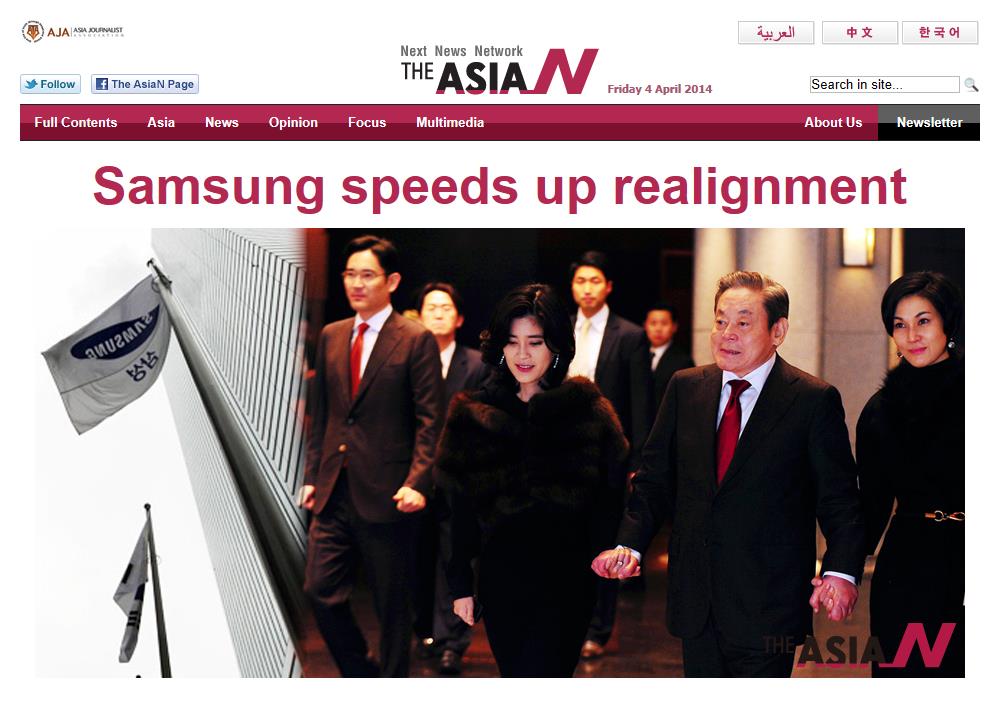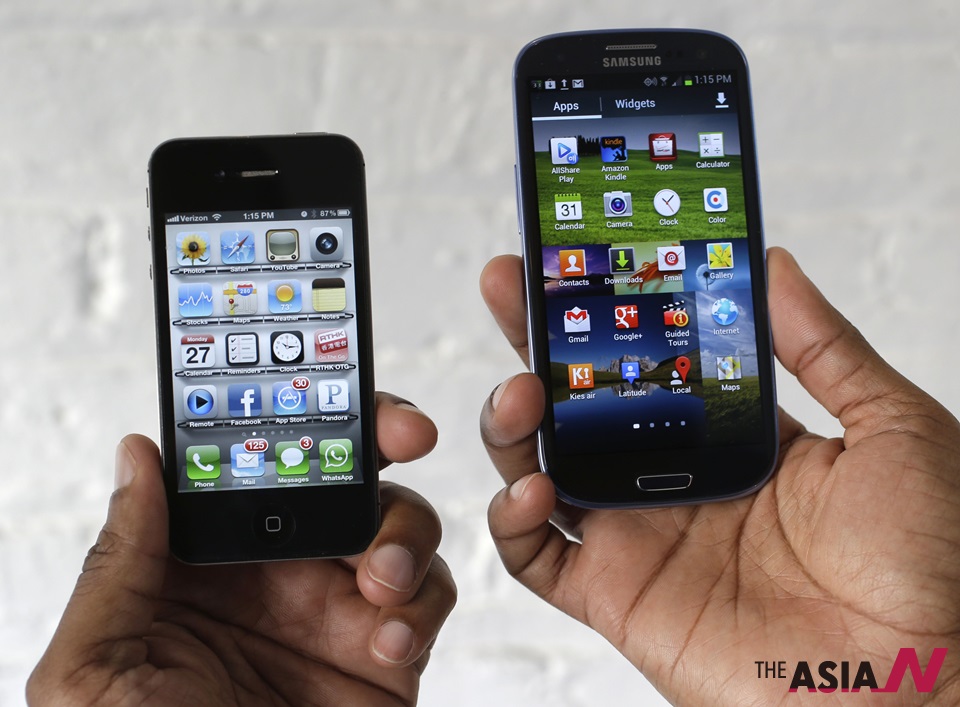Samsung speeds up realignment
Group expected to merge construction units soon
Samsung Group is accelerating its move to realign its affiliates through merger and acquisition (M&A) to foster a next cash generator and diversify its revenue portfolios.
The nation’s biggest conglomerate said that the group needs to reduce its dependence on Samsung Electronics both in profits and sales amid growing market uncertainties and increasing competition from its rivals.
The consumer electronics affiliate accounted for over 75 percent of the group’s total annual profit and revenue in 2013.
“Without ‘another Samsung Electronics,’ the group may lose competitiveness sometime later,” said an executive at Samsung Group by telephone.
The senior executive said that Samsung is not in crisis but is now facing serious challenges.
“Our chairman ordered top management at Samsung affiliates to develop business models to ensure profit sustainability,” said the executive.
“Samsung has been restructuring businesses to create the next Samsung Electronics by concentrating on some key businesses, including consumer electronics, chemicals, construction, heavy industries and finance,” he added.
Against this backdrop, Samsung General Chemicals, an unlisted unit of Korea’s Samsung Group, said Wednesday that it will merge with Samsung Petrochemical, another unlisted subsidiary.
The merged company, to be named Samsung General Chemicals, will be launched on June 1, with shareholders to get 2.14 Samsung General Chemicals shares for each Samsung Petrochemical share they have.
“The main purpose of business restructuring or realignments is to boost synergy by combining units within the same value chain. Such a trend will be accelerated as Samsung founding families directly control the initiatives,” said the group official.
The announcement came two days after Samsung SDI, the world’s largest maker of TV displays and smartphone batteries, said it will acquire Cheil Industries, another Samsung affiliate that produces electronic materials and chemicals.
Samsung Electronics, the biggest smartphone vendor and leading memory chip and TV supplier, was considered the lone growth engine for the group over the past few years, as the flagship unit reported 30.47 trillion won net profit last year, up 28 percent from the previous year.
During the same period, other Samsung key affiliates suffered from a drop in profit. Samsung’s petrochemical business is far behind its local rivals such as LG, SK, Hanwha and Lotte.
Samsung Fine Chemicals earned 3.3 billion won in net profit last year, down 95 percent from 2012, while Samsung SDI and Hotel Shilla saw their net profit plunge by 90 percent and 89 percent during the same period, respectively.
“When you compare balance sheets of Samsung Electronics and other affiliates, you can easily see huge differences and reading behind the realignment,” said another Samsung official.
Samsung sources said its construction affiliates will become the next target.
Samsung has four construction-related affiliates represented by Samsung C&T,Samsung Engineering, Samsung Heavy Industries and Samsung Everland.
Samsung representatives declined to comment about its next moves citing the sensitivity of the issue.
The latest move by the group is seen as a step for Samsung Electronics Chairman Lee Kun-hee to hand over managerial control to his children ― a third-generation transfer in the family-run group.
Korea Investment, a leading local brokerage, pointed out that Samsung is changing business structures to transfer power to the chairman’s children.
“Samsung Vice Chairman Lee Jay-yong will handle electronics, and finance affiliates, while the chairman’s oldest daughter Lee Boo-jin and youngest Lee Seo-hyun will take over the group’s hotel, heavy industries and fashion and media businesses, respectively,” said Lee Sang-hun, an analyst at Hi Investment.
He added the ongoing business retooling is aimed at ensuring that the Lee family gains firm control of Samsung Group.
Currently, Jay-yong is the chief operating officer at Samsung Electronics. He manages major business projects with top clients including Apple and BMW.
Boo-jin is the CEO of Shilla Hotel, one of the most luxurious boutique hotels in Seoul, while Seo-hyun, who studied at the Parsons School of Fashion in the United States, runs the group’s fashion and media businesses. By Kim Yoo-chul, The Korea Times






